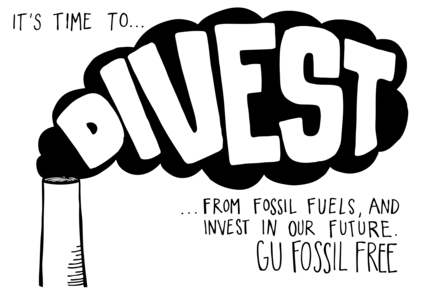1,000 signatures reached
To: Investment Advisory Panel, West Yorkshire Pension Fund
Divest West Yorkshire Pension Fund from Fossil Fuel Investments

We call upon the West Yorkshire Pension Fund to:
Make a public divestment statement committing the West Yorkshire Pension Fund to:
1. Immediately freeze any new investment in the top 200 publicly-traded fossil fuel companies with largest known carbon reserves (oil, coal and gas)
2. Divest from direct ownership and any commingled funds that include fossil fuel public equities and corporate bonds in the top 200 list and shift these funds to lower risk, ethical investments within 5 years
3. Advocate to other pension funds, including members of the the Local Authority Pension Fund Forum and Local Government Pension Scheme to do the same
4. To do the above in a timely manner - by setting up a working group to report back on a strategy to bring about divestment within three months from the submission of this petition
Make a public divestment statement committing the West Yorkshire Pension Fund to:
1. Immediately freeze any new investment in the top 200 publicly-traded fossil fuel companies with largest known carbon reserves (oil, coal and gas)
2. Divest from direct ownership and any commingled funds that include fossil fuel public equities and corporate bonds in the top 200 list and shift these funds to lower risk, ethical investments within 5 years
3. Advocate to other pension funds, including members of the the Local Authority Pension Fund Forum and Local Government Pension Scheme to do the same
4. To do the above in a timely manner - by setting up a working group to report back on a strategy to bring about divestment within three months from the submission of this petition
Why is this important?
Over 5% of WYPF's investments are in fossil fuel companies, including £207 million invested in BP and £171 million invested in Royal Dutch Shell. [1]
Climate change is the greatest challenge humanity has encountered. Warming in excess of 2°C will have catastrophic consequences. In order to have a chance of staying below this maximum upper limit of warming 80% of known fossil fuel reserves must not be burnt.
Recent research, instigated by the Carbon Tracker foundation, asserts that there are five times more fossil-fuel reserves than can be burnt if internationally agreed carbon emissions targets are to be met.
The fossil fuel industry currently holds vast carbon reserves which if burnt would result in emissions 5 times larger than what it is deemed to be safe. All available evidence suggests that fossil fuel companies intend to burn the reserves within their control. In addition, companies such as Shell are actively trying to discover new reserves, often in environmentally sensitive regions.
Fossil fuel equities also pose significant financial risks. As governments control carbon emissions to meet these targets a large proportion of fossil fuel reserves which companies expect to extract will become stranded assets: a “carbon bubble”. Funds which are exposed to fossil fuel equities when this bubble bursts can expect to suffer considerable losses. The Governor of the Bank of England, Mark Carney has recently expressed concerns over climate risk, stating that the “vast majority of reserves are unburnable” if global temperature rises are to be limited to below 2C.[2]
[1} WYPF Valuation March 2014
[2] http://www.theguardian.com/environment/2014/oct/13/mark-carney-fossil-fuel-reserves-burned-carbon-bubble
Climate change is the greatest challenge humanity has encountered. Warming in excess of 2°C will have catastrophic consequences. In order to have a chance of staying below this maximum upper limit of warming 80% of known fossil fuel reserves must not be burnt.
Recent research, instigated by the Carbon Tracker foundation, asserts that there are five times more fossil-fuel reserves than can be burnt if internationally agreed carbon emissions targets are to be met.
The fossil fuel industry currently holds vast carbon reserves which if burnt would result in emissions 5 times larger than what it is deemed to be safe. All available evidence suggests that fossil fuel companies intend to burn the reserves within their control. In addition, companies such as Shell are actively trying to discover new reserves, often in environmentally sensitive regions.
Fossil fuel equities also pose significant financial risks. As governments control carbon emissions to meet these targets a large proportion of fossil fuel reserves which companies expect to extract will become stranded assets: a “carbon bubble”. Funds which are exposed to fossil fuel equities when this bubble bursts can expect to suffer considerable losses. The Governor of the Bank of England, Mark Carney has recently expressed concerns over climate risk, stating that the “vast majority of reserves are unburnable” if global temperature rises are to be limited to below 2C.[2]
[1} WYPF Valuation March 2014
[2] http://www.theguardian.com/environment/2014/oct/13/mark-carney-fossil-fuel-reserves-burned-carbon-bubble

